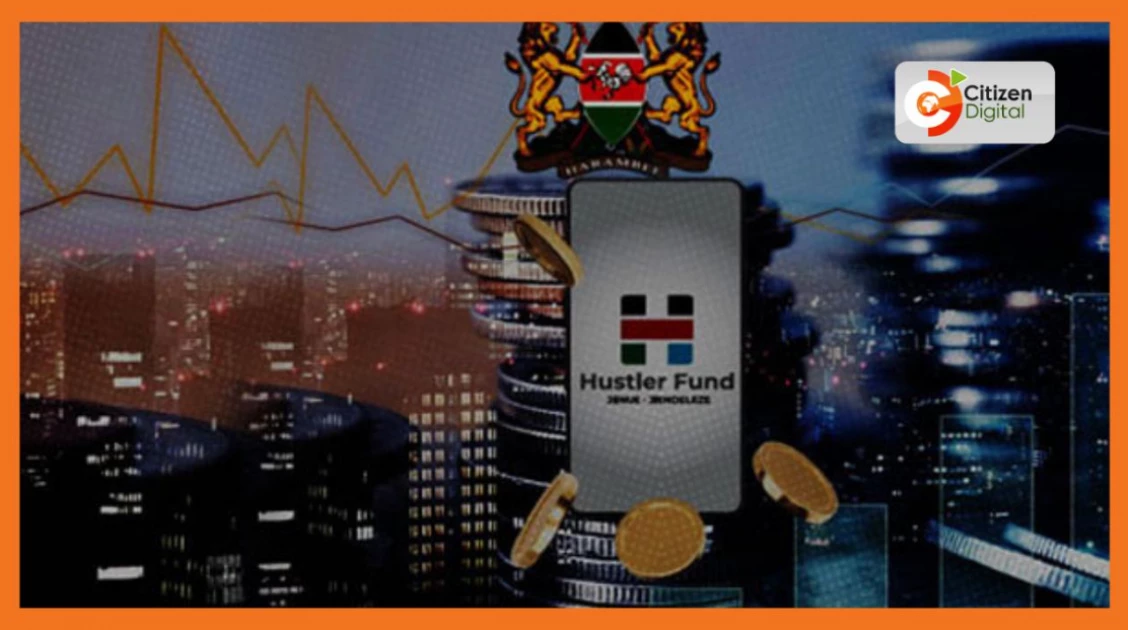KHRC wants 'failed' Hustler Fund scrapped, warns of attempts to reform it


Audio By Carbonatix
In a report released on Monday, the KHRC warned that the programme is a recipe for financial failure as it lacks a sustainable plan to empower Kenyans at the bottom of the pyramid as earlier intended.
According to the rights body, scrapping the programme is the only viable option for the Kenyan government, as reforming or re-engineering the Fund will not address the fundamental design, political, and legal flaws that have hunted it since its inception in November 2022.
Fund burdened by defaulters
In the 2025/26 budget Treasury allocated Ksh. 300 million to the fund, down from Ksh.5 billion in FY 2024/25 and Ksh.10 billion in the 2023/24 financial year.
This is despite a 2023 report from the Auditor General revealing a 32% default rate, where about Ksh. 10.9 billion was yet to be repaid out of the Ksh.32 billion disbursed.
Named ‘Failing the Hustlers’ the KHRC report indicates a 68% default rate, where “for every Ksh.500 loan disbursed, Ksh.340 is effectively lost.”
This, the rights body warns, piles pressure on the exchequer as the government is forced to borrow, mainly through Treasury bills, to keep the Hustler Fund initiative running.
The KHRC notes that the defaulting rate began to steadily rise in December 2022, as 40.7% of the borrowers failed to pay the loan by December 14, 2022, 47.5% by December 15, 52.2% by December 16 and 68.3% by December 20, 2022.
The highest rate of defaulting (78%) was reported among elderly persons above 90 years, followed by those aged below 30 years (12%) and those aged between 30-90 years registering a 5% default rate.
KHRC terms the 14-day loan repayment period as unrealistically short and a recipe for financial failure.
“If the government is truly genuine about empowering Kenyans at the bottom of the pyramid, it must go beyond populist headlines,” KHRC states.
“Otherwise, the Hustler Fund is quickly proving to be another politically convenient but economically unsustainable initiative.”
Weak frameworks
The rights body also notes that the frameworks guiding the operationalization of the Hustler Fund lack transparency and are unrealistic.
It notes that the requirements one must fulfil to get the loan through their mobile money account are not stringent. It notes lack of collateral requirements and clearly defined loan recovery regulations.
Hustler Fund oversight board is seen as a highly centralized governance structure that undermines its effectiveness.
With the high default rate and lack of proper recovery mechanisms, KHRC says the Fund is bleeding money.
“The numbers don’t add up when combined with the cost of operations (estimated at three percent) and the government’s borrowing costs to finance the Fund (8.2 percent).”
KHRC also notes that the Hustler Fund fails to offer financial products that meet the need of diverse borrowers and lacks critical support services to promote entrepreneurial success among borrowers.
“The regulations do not provide a structured financial literacy framework beyond the digital disbursement of funds,” the report notes.
A Political reward
The Hustler Fund was a major item in President William Ruto’s manifesto under the Bottom-Up Economic Transformation Agenda (BETA). Launched in a colourful ceremony on November 30, 2022, the Inclusion Fund was Ruto’s flagship programme nearly two months after taking office.
As a project that propelled Ruto to Presidency, KHRC warns that the Hustler Fund is being used as a tool for political patronage that is “designed to demonstrate that the campaign promise was fulfilled—rather than to foster true self-reliance and economic empowerment for the majority.”
The report finds that the politicization of the Hustler Fund has undermined its legitimacy, failing to respond to genuine financial needs.
“Instead, it serves as a post-election reward mechanism and a tool for political messaging. The widespread perception that it is a handout—and therefore repayment is optional—has destroyed the credit discipline and financial education needed for sustainable lending,” states KHRC.
The findings of the KHRC report show that Nairobi, Kiambu and Nakuru County are leading consumers of the financial product.


Leave a Comment